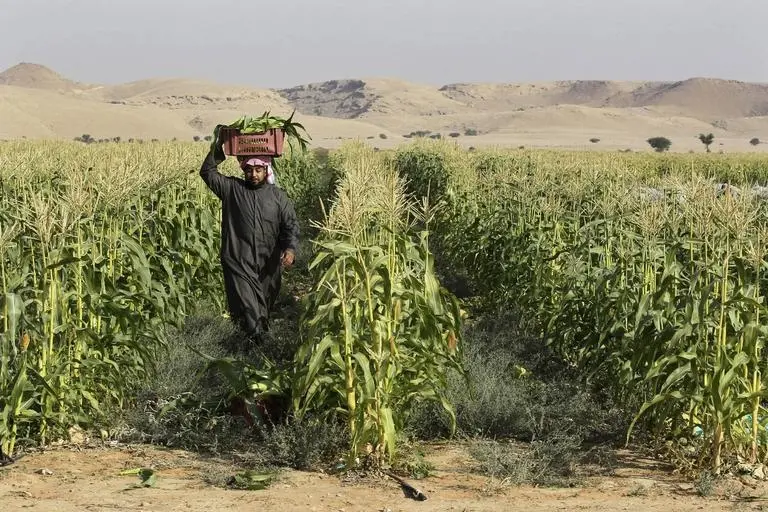PHOTO
Saudi Arabia’s agriculture development over the past three decades has been astonishing and has attracted more than SR200 billion ($53 billion) in investment annually. This progress is largely due to an array of government programs including the provision of interest-free loans and technical and support services for diversification and greater efficiency.
However, our country still offers vast areas of untapped land estimated at 3,800 km off the coast of the Arabian Gulf and the Red Sea. Saudi Arabia is the Middle East’s largest individual food importer, where around 80 percent of our food consumption is imported. Food consumption in the Kingdom, currently estimated at about 16 million tons, is expected to grow 4.6 percent.
Owing to Vision 2030, Saudi Arabia’s most ambitious agricultural accomplishment is its complete self-sufficiency and even transformation from importer to exporter of basic foods, such as wheat, dates, dairy products, meats, and vegetables to markets around the world.
Saudi Arabia has approved financial support for the environment, water and agriculture sectors worth SR92 billion to help them meet their goals under the government’s 2030 Economic Plan. The ministries have received support from the government to achieve 16 strategic goals to facilitate the economic transformation program and to accomplish the Kingdom’s Vision 2030. This includes the shift toward using compound fodder instead of the traditional green feed, and investments in aquaculture and greenhouses. The most important objective is to increase the level of food security within the region.
In addition, King Salman has recently inaugurated the Sustainable Agricultural Rural Development Program, which covers eight promising sectors. The Kingdom has allocated a total of SR7.35 billion for the program over seven years. Such programs will not only boost investment in the agriculture sector but will also diversify the sector, improve the incomes of small farmers, create job opportunities and contribute to food security and sustainable development.
Although Saudi Arabia’s policy shift on self-sufficiency and wheat production over the past five years has garnered the most attention, the government has instituted a number of other plans to mitigate the effects of agricultural production on the country’s water reserves as agricultural consumption accounts for 95 percent of total water usage. One of the most important moves in this respect has been the emphasis on organic and greenhouse production, methods of farming that will place less of a burden on our water-scare resource. More innovative methods will be discussed during the annual Saudi Water Forum 2019 starting today in Riyadh.
Given the shifting demographic dynamics of the Saudi market, I believe that farmers and investors venturing down the organic path are likely to find a receptive customer base in the coming years. This trend is likely to continue, partly as a result of the size of the young population and also because of increasing awareness of the importance of health and wellness among those consumers.
Basil M.K. Al-Ghalayini is the Chairman and CEO of BMG Financial Group.
Disclaimer: Views expressed by writers in this section are their own and do not necessarily reflect Arab News' point-of-view
Copyright: Arab News © 2019 All rights reserved. Provided by SyndiGate Media Inc. (Syndigate.info).





















